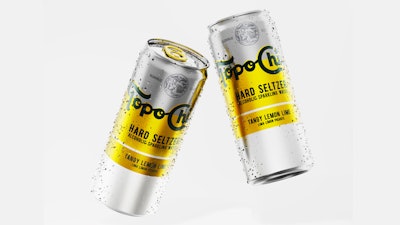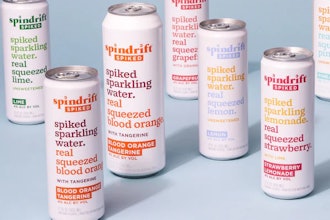
SILVER SPRING, Md. (AP) — With the help of Molson Coors, Coca-Cola will start selling the “hard stuff” — hard seltzer, that is.
The companies said the new alcoholic beverage will come in the form of Topo Chico Hard Seltzer, which they hope to have on store shelves in the first half of 2021. The hard seltzer will come in four flavors: Tangy Lemon Lime, Exotic Pineapple, Strawberry Guava and Tropical Mango.
Molson Coors, which has two other seltzer brands in its portfolio, will handle the marketing, sales and distribution of the alcohol-infused mineral water, a product that has seen massive growth in the U.S. recently.
IWSR Drinks Market Analysis, a data firm, said sales of hard seltzers like White Claw and Truly jumped more than 200% last year to $1.5 billion. The data firm said late last year that it expects consumption of hard seltzer to triple by 2023.
On a retail level, that's already happened. Nielsen said sales of hard seltzer were up 211% in 2019. Even with pandemic-related closures and people generally staying home more, retail sales of hard seltzer are up 192% year-to-date and 186% in the 29 weeks since the pandemic hit. Those numbers don't include sales declines at bars, restaurants and other venues that had to close for extended periods due to the virus outbreak.
“While hard seltzer’s growth has slowed slightly, we don’t see it approaching market saturation, and instead there is plenty of room for growth — particularly when you consider new launches and new buyers of hard seltzer,” said Danelle Kosmal of Nielsen, which tracks global consumer habits.
Coke was likely looking to get into the booming hard seltzer market before its revenue plunged 28% in the second quarter due to the coronavirus outbreak. Half of Coca-Cola’s sales come from stadiums, movie theaters and other places where people gather in large numbers — venues that have mostly shut down during the pandemic.
Coke bought the 125-year-old Topo Chico brand in 2017 for $220 million. It’s among more than 500 brands the Atlanta-based beverage giant owns, having diversified over the years as consumers cut back their sugary soda drinking due to health concerns.






















